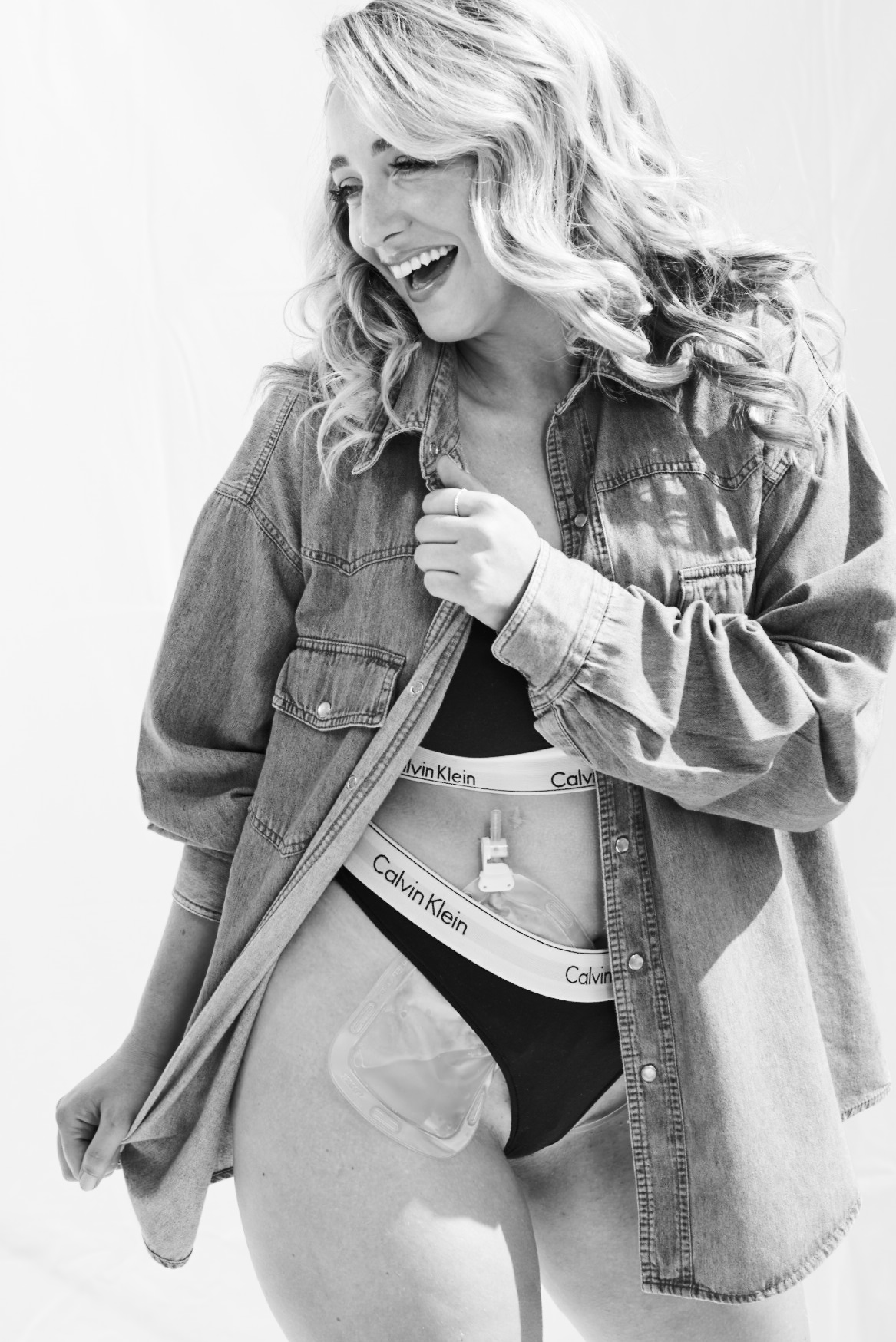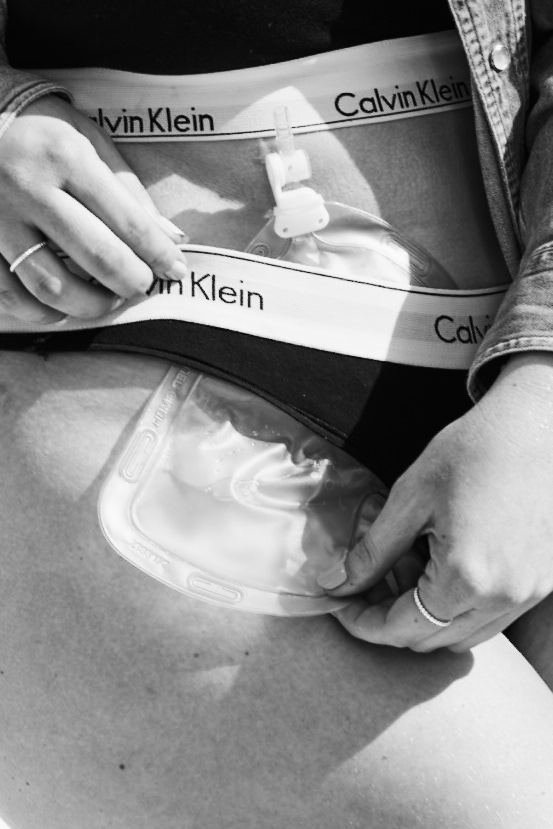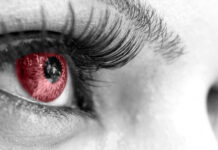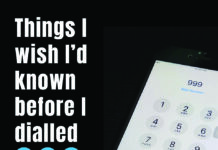

I have a condition known as Fowler’s Syndrome. First described and recognised in 1985, Fowler’s Syndrome is failure of the sphincter muscle (the muscle that keeps you continent), causing urinary retention – typically occurring in women.
It’s a lifelong chronic condition. It usually occurs secondary to a trauma or another illness, triggering the sphincter muscle to tighten to the point it cannot relax anymore. Typically, a woman with Fowler’s Syndrome will not get a normal sensation to want to pass urine, and will suffer with pain and discomfort associated with having a wee. Most women self-catheterise (if you are able to, however this is rare for women with Fowler’s), have a suprapubic catheter either long-term or short-term, or have had bladder augmentation (a Mitrofanoff, a neo-bladder or a urostomy).
I currently have a suprapubic catheter that needs changing every 6–8 weeks.
My condition affects everything. Being an invisible illness (the fact you would not be able to tell what is wrong with me unless I stood in front of you without my clothes on) means that people often forget how much of your daily life it affects. I am a primary school teacher. My classroom is situated near a toilet for obvious reasons. On a good day, I’m great – I feel I hide it well. On a bad day, I’ve had to use the disabled shower midway through the day to shower off leaks, I’ve had three outfit changes that I’ve had to blame on a paint spillage or tea being knocked over, or I’ve a hot water bottle strapped to my tummy under my dress to help with pain. My teaching assistant is my most valuable asset and I’ve always been so lucky to have a great one beside me each year who will always be there to help with bending and lifting or covering for me if I need to nip to the toilet.
I am lucky to have a brilliant boyfriend and, if I am honest, all of my past partners have always been great and understanding when it comes to hospital trips or supporting me with round-the-clock care. However, I did struggle with a body image change and lack of self-confidence after first being fitted with my catheter. This has over the years affected my mental health profoundly.
I am strong-willed and determined to live as ‘near normal’ a life as possible, so I do (nearly always) manage to do what I want to do with regards to hobbies and socialising – where there is a will, there is a way. There have been times where, if my bladder pain has been severe or if I’ve been in hospital, had a leak or an infection, then I have had to cancel plans. I find these out-of-my-control situations hard to cope with, as I do generally try so hard to not let my condition define me or rule me.
There are so many challenges to face when it comes to having a disability or chronic illness but one that is specific to a disability that is invisible is, in my opinion, awareness and understanding. Because people cannot see my tubes, bags and scars, they underestimate how much of my life it affects or the pain I am in day-to-day when I have a flare-up. I guess the biggest lesson I have learnt because of this is that everyone is fighting a battle you know nothing about, be kind always.
Generally, I feel society reacts to me quite well. But I do find it tough that I don’t qualify for things like a blue disabled badge as, according to the government’s rules and regulations, I am ‘not disabled enough’. Yet I have had to use disabled bays on occasion because of my mobility being poor – on that particular day – or I’ve needed immediate, quick and fast access to a toilet. I do feel invisible disabilities are overlooked in this respect. Only now, 10 years after my diagnosis, have I been given a radar key for a disabled toilet! To all those who have looked at me with judgmental eyes for using a disabled toilet in the past, please learn to not judge a book by its cover.
The one piece of advice I would give about having a disability is talk about it. Talking really is important. Sharing my story, asking for help when I’ve needed it and venting to close family and friends has prevented me from sinking and helped me to accept my situation. You are not alone, there really is a huge chronic health and invisible illness community out there.
Yes, I guess I am treated differently when people realise I have a disability. When they realise the severity of my condition and what an impact it can have on my life they tend to be more sympathetic. It frustrates me as, if my condition was visible, I feel people would be more sympathetic from the get-go but then that is part and parcel of living with an invisible illness. I am grateful that I have the option to hide my wounds, scars and tubes when I choose to. Some people don’t have that choice so I do feel I am fortunate for that.
However, I don’t feel there is adequate help and understanding around my disability. It’s difficult because my condition is rare and relatively unknown. This is something I hope to change as I create more conversation and awareness surrounding Fowler’s, bladder conditions and chronic health in general via my blog, Twitter page and Instagram posts. I look forward to collaborating with other invisible illness and chronic health advocates to make positive change and raise awareness.
Having this disability has affected my mental health hugely. Coming to terms with things being so out of my control has been hard. Knowing I will battle this forever and I cannot change it is something I still struggle to deal with. When something is wrong physically, it impacts you mentally in all sorts of ways. I am lucky to be supported by my nearest and dearest who often reassure me by saying, ‘It’s okay to not be okay’. It wasn’t easy at first but I now have many coping strategies in place. One book I would recommend is My Wellness Toolbox by Ali Swift. This has helped me no end when it comes to creating my own wellness toolbox which I can now metaphorically dip in to when I am having a bad day. Unfortunately, I don’t think the mental health battle will ever cease as I am faced with new health-related challenges constantly. However, I am getting better at dealing with the bad days when they come.
I would like to thank Mama Life for the opportunity to highlight invisible illnesses and for allowing me to take part in this shoot. Let’s make conversation surrounding invisible illness and chronic health centre stage – your story could be the key to unlocking someone else’s prison. Please follow my journey at www.bisforbladder.com (blog) or follow me on Instagram and Twitter – @bisforbladder.
By Aoife Madden











